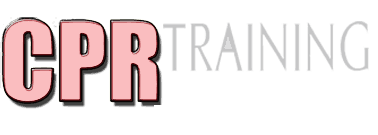Trench mouth is a severe and painful form of gingivitis that may result in infected, painful, bleeding gums and ulcers. Even though trench mouth is a rare condition in developed countries, it is still common in developing countries, especially those with poor living conditions and poor nutrition.
Trench mouth is also called necrotizing ulcerative gingivitis. It is known as trench mouth because it was a common oral condition in the World War I period, in soldiers stuck in trenches and thus having no proper means of cleaning their teeth.
Trench mouth is not a contagious oral condition.
Trench Mouth Treatment from YouTube
Signs and symptoms
Signs and symptoms of trench mouth include:
- Severe pain in the gums
- Red or swollen gums
- Bleeding gums, especially when pressed subtly
- Pain while eating or swallowing
- Sores resembling craters between the teeth and also on the gums
- Gray film on the gums
- An unpleasant taste in the mouth
- Bad breath
- Fever and fatigue
- Swollen lymph nodes around the jaw, head or neck
When to seek medical attention
Symptoms of trench mouth develop rapidly therefore, it is important that you seek immediate treatment right when you begin to notice any symptoms.
Any form of gum disease is a cause for concern as it can worsen if left untreated. The sooner the condition is treated, the higher the chances of restoring the health of the gums. If you allow the condition to persist without treatment, permanent tooth loss and tissue or bone damage will result.
Treatment
Treatment for trench mouth is usually very effective and can get healed completely within just two weeks. The healing process may be slower however, if you have a weakened immune system, such as in the case of HIV/AIDS.
You may be prescribed to the take the following medications for trench mouth:
- Antibiotics. Antibiotics are generally prescribed since trench mouth is caused due to the overgrowth of bacteria in the mouth.
- Pain relievers. Over-the-counter or prescription pain medications are required to control pain so that you can continue with proper oral care habits such as regular brushing and flossing. Topical antiseptics may also be recommended.
- Antiseptic mouth rinse. Use antiseptic mouth rinse prescribed by your dentist to speed up recovery time.
Clean your teeth and gums
Treatment primarily also involves cleaning the gums and teeth thoroughly. You can rinse your mouth using an antiseptic mouthwash, if prescribed by your dentist. Once your gums are less tender or puffy, you may undergo a type of cleaning process called scaling and root planing.
After cleaning, your gums may become tender. Therefore, you may be advised to rinse your mouth using a hydrogen peroxide mouth wash, a prescription mouth rinse or a salt water rinse along with gently brushing using a soft toothbrush.
Once your gums commence to heal, you will be asked to floss and brush at least twice on a daily basis or after every meal and before you sleep.
Surgery
Surgery is recommended if to repair the gums that are damaged extensively, even if they respond to homecare treatments.
